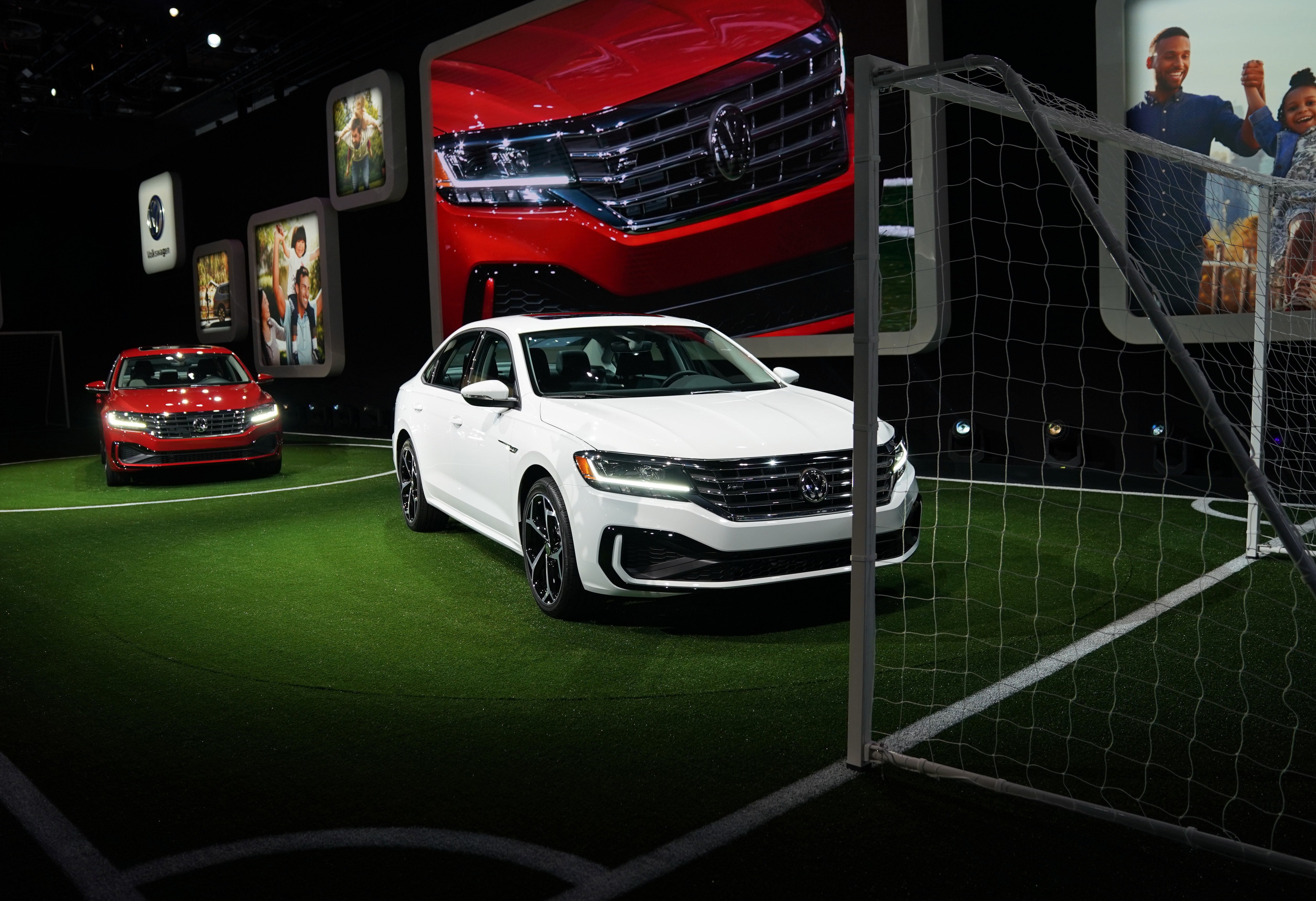US car buyers swerve away from compact cars, sedans
The Volkswagon 2020 Passat, displayed on day one of the 2019 North American International Auto Show (TIMOTHY A. CLARY)
Detroit (AFP) – A persistent question shadowed all of the shiny new vehicles and highly-produced, glitzy debuts at the Detroit auto show this week: Where are the sedans?
Volkswagen was among the few to trumpet a new sedan — those compact and mid-sized cars that shuttled generations of American children to school in the morning and soccer practice in the afternoon.
But despite its ubiquity in the suburban driveways and garages of the past, the vehicle segment’s future is anything but certain.
The middle-class sedan — as opposed to luxury brands and high-performance sports cars — is hard to find this week on the Detroit auto show’s floor, eclipsed by row upon row of giant trucks and SUVs.
“Car companies are acknowledging that the crossover, sport utility vehicle boom is continuing,” said analyst Michelle Krebs of AutoTrader.
Detroit’s Big Three automakers — Ford, General Motors and Fiat Chrysler — have gradually abandoned production of sedans for lack of profitability and lack of interest from consumers.
Sales of traditional cars are expected to plummet to 21.5 percent of the US auto market by 2025, according to LMC Automotive. Last year, sedans and small cars accounted for 31.2 percent of new-vehicle sales — down from half only six years ago.
The abrupt tumble coincided with the revival of the US auto industry, a drop in gas prices and a decade of economic recovery in the United States.
Consumers flocked to larger SUVs and trucks, which became more and more luxurious and comfortable and increasingly gas efficient.
– ‘Badly produced’ –
SUV sales rose 87 percent since 2013. The “sports” utility vehicle — now more likely to be used as the family car — is expected to account for about 40 percent of the North American vehicle market by 2025, according to LMC Automotive.
Meanwhile, once popular sedans such as the Toyota Camry, Honda Accord, Ford Fusion and Nissan Altima saw their sales dip in 2018 by double digits. And analysts predict the worst is yet to come.
To reduce overcapacity in the production of small cars and sedans, America’s Big Three automakers downsized.
Fiat Chrysler’s late CEO Sergio Marchionne in 2016 was the first to give up on the vehicle segment — ending production of the Dodge Dart and Chrysler 200 to focus on Jeeps and RAM pickups. The company’s stock price more than doubled in three years.
GM in November said it would end production of six models: the Cadillac CT6 and XTS, as well as the Chevrolet Impala, Cruze, Volt, and the Buick LaCrosse.
Ford joined the fray. By 2020, it will no longer sell the Fusion, Taurus, or Focus in the United States. Aside from the Mustang sports car, it will only offer pickup trucks and SUVs.
“Ford loses an estimated $800 million a year selling cars in North America,” said Bob Shanks, the group’s CFO.
For consumers, one of the main draws of small cars and sedans used to be efficiency and cost. But that has changed.
Take the Chevrolet Malibu. The sedan averages 29 miles per gallon in the city — practically identical to the larger Chevy Equinox SUV’s 28 miles per gallon. The SUV also costs just $2,000 more.
“Frankly, it’s about usable space,” said Ford Chairman Bill Ford. “It’s very clear that our customers are saying to us: we want more usable space, we want, in many cases, three-row seating and those kinds of things.”
He argues, however, that if there is renewed love for compact cars, “we can adapt very quickly.”
Asian automakers, like Toyota and Honda, believe that smaller cars and sedans still have their place in American factories and remain confident about their future here.
“It’s still 5.2 million vehicles sold in the sedan market. That’s still a great market globally. US sedan sales are still much larger than any markets around the world, and it’s one we’re committed to stay in,” said Robert Carter, chief of North American sales for Toyota.
So why then the disappearance of so many sedans?
“It’s not that sedans are dead,” said industry research firm MotorTrend.
“Sedans that are poorly executed are dead.”
Disclaimer: This story is published from a syndicated feed. Siliconeer does not assume any liability for the above story. Validity of the above story is for 7 Days from original date of publishing. Content copyright AFP.


